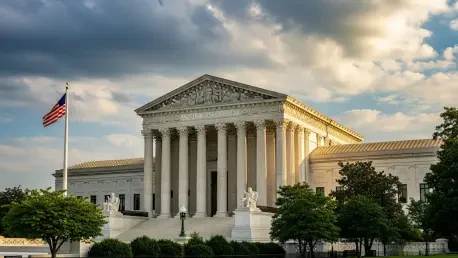The Supreme Court’s recent decision has sparked significant debate over the boundaries of religious rights within public education. In a 6-3 ruling, the Court sided with parents in Montgomery County, Maryland, granting them the right to exempt their children from LGBTQ-themed lessons. This decision marked another victory for advocates of religious rights, continuing a trend where the Court’s conservative majority has favored religious arguments. The ruling underscored the ongoing tension between public educational curricula and parental religious beliefs, exemplifying a divisive issue at the heart of contemporary societal discourse.
The Court’s Ruling and Its Implications
Context and Legal Standpoint
Justice Samuel Alito, writing for the majority, emphasized the constitutional rights at play, particularly the free exercise of religion. He argued that the absence of an opt-out provision for lessons involving LGBTQ themes likely infringes on these rights. Consequently, the matter has been referred back to a lower court for a decisive ruling on whether Montgomery County must offer this opt-out provision. Meanwhile, schools are mandated to inform parents in advance and permit the exclusion of their children from such lessons. This judicial directive is perceived by many as a move to reinforce the space for religious expression within the public educational system, raising questions about the balance between educational inclusivity and religious freedom.
The ruling was met with dissent from the Court’s three Democratic-appointed justices, led by Justice Sonia Sotomayor. The dissenting justices cautioned that the outcome could lead to chaos within public schools. They argued that the requirement for advance notifications for any lesson potentially conflicting with religious beliefs could overwhelm administrators, resulting in significant disruptions or absenteeism. This perspective highlights concerns about the operational feasibility of implementing such policies across diverse school environments.
Historical Context of Educational Policies
Montgomery County initially accommodated parental opt-out requests but reversed this policy after encountering a significant increase in exemptions grounded in religious beliefs following the introduction of LGBTQ-themed books into elementary curricula. The subsequent legal challenge was spearheaded by a coalition of Muslim, Roman Catholic, and Ukrainian Orthodox parents. This coalition, supported by the Becket Fund for Religious Liberty, argued that the absence of an opt-out provision violated their religious freedoms. The case received backing from various conservative entities, including the Trump administration, the Church of Jesus Christ of Latter-day Saints, and several Republican legislators, stressing the widespread support for religious rights in this context.
On the opposing end, prominent organizations such as the ACLU, Democratic officials, and LGBTQ advocacy groups rallied in support of Montgomery County. They argued that the presence of diverse perspectives in education is essential for fostering tolerance and understanding. This split reflects the broader societal divide over how educational content should be approached and the extent to which parental beliefs should influence public curricula. It encapsulates a growing tension between accommodating diversity in educational settings and respecting individual religious convictions.
Broader Trends: Religious Liberties in Education
Other Supreme Court Cases
The Montgomery County case is just one in a series of recent Supreme Court decisions that have illustrated the increasingly robust judicial examination of religious liberties within educational contexts. Notably, this trend includes a 4-4 deadlock concerning the establishment of a publicly funded religious charter school, alongside a unanimous ruling mandating that Wisconsin extend a religious tax exemption to the Catholic Charities Bureau. These cases collectively highlight a growing judicial willingness to navigate and potentially expand the scope of religious freedoms within public and private educational frameworks.
Such judicial developments have prompted robust discussion about the ramifications for educational policy and the role of religious freedoms in shaping curriculum content. The implications of these decisions are far-reaching, affecting not only the immediate stakeholders but also setting precedents that could influence future educational laws and policies nationally. This judicial pattern suggests an increasing prioritization of religious considerations in educational matters, potentially reshaping how religion and educational content intersect in the public sphere.
Societal Implications and Ongoing Debate
This series of judicial rulings underscores the ongoing societal debate about the intersection of education, religious freedoms, and LGBTQ rights. The Court’s decisions resonate beyond legal circles, influencing public opinion on how best to balance the diverse beliefs and values present within American society. They raise pivotal questions about the role of education in promoting inclusivity and understanding, challenging traditional norms, and accommodating the pluralistic tapestry that defines contemporary America.
The ongoing legal challenges and resulting discussions emphasize the need for careful deliberation when navigating these complex issues. They reflect a society grappling with competing values, striving to find a middle ground that respects individual liberties while promoting collective understanding and cohesion. As educational policies continue to evolve in response to these challenges, the dialogue initiated by these judicial decisions will likely persist, shaping not only the future of educational practices but also the broader societal landscape.
Navigating Future Educational Policies
The recent Supreme Court decision has ignited considerable debate over the extent of religious rights in public education. In a 6-3 ruling, the Court sided with parents from Montgomery County, Maryland, allowing them to exclude their children from LGBTQ-oriented lessons. This decision is a notable win for religious rights advocates, reinforcing a pattern where the Court’s conservative majority often prioritizes religious considerations. Central to this case is the tension between what public educational curricula should encompass and the religious beliefs held by parents, highlighting a deeply divisive topic in today’s society. This ruling surfaces issues about inclusivity, educational standards, and religious freedoms, prompting extensive discussions on balancing these elements in public schooling. Furthermore, it sparks questions about how to accommodate diverse family values while ensuring a comprehensive, unbiased educational experience for all students, reflecting the ongoing debate that challenges educators and lawmakers alike.









